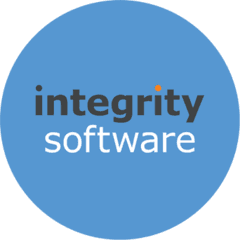Blog
Five common construction admin challenges
Businesses in the construction industry face a different set of challenges than your average company. Take one aspect: finances. Most businesses face a relatively predictable set of costs and revenue that often align with each other. In construction, the payment structure is very different, with income rarely synchronizing with costs. Contractors must plan for interim payments, and also take into account retention for months (or years) after the project is completed.
The payment structure alone presents many paperwork challenges in construction, but there are many sources of admin work that also weigh down contractors. Let’s look at some of the most common admin challenges, and how you can manage them more effectively.
#1 Communicating with remote workers
Sure, we know that mobile phones exist - but even so, it can be clunky for field-based workers to share photos and documents with the office - and your accounting system. Sending countless emails with attachments is bound to result in documents being misfiled or mislaid entirely. We recommend using a bespoke document management system to ensure that remote workers are able to share files that can then be accessed from any location.
#2 Verifying subcontractors
CIS verification is a notorious admin burden for contractors - but you can’t avoid it! Streamline these key processes by using CIS verification and submission software that links directly to HMRC, eliminating the need for double data-entry and the errors it inevitably causes. You’ll never miss a payment to subcontractors again, helping you preserve those all-important relationships that help your business excel.
#3 Managing plant and maintenance
If your company manages a high volume of jobs, managing your maintenance responsibilities can be something of an administrative nightmare. You must make sure you meet your contractual obligations while ensuring that engineers’ schedules are managed effectively.
Similarly, plant management can be just as time-consuming and fiddly. You need to manage their use, maintenance and costs - which usually involves a lot of paperwork.
Look for some construction management software which includes the ability to manage maintenance and plant, if your company struggles with these tasks. By accurately recording these aspects of your business, you also help protect your company during contract disputes.
#4 Keeping track of profitability
As we mentioned at the start of this article, payment structures in the construction industry are complex. The unpredictability of many construction projects adds to the potential for cash flow problems. It’s therefore vital to know the current status of each contract at regular intervals. That’s where cost value reconciliation (CVR) steps in. Actual costs and revenue are recorded as they arise, with further adjustments made where necessary. You can then use your system to predict the profitability of each contract given this new information.
#5 Payment authorisations
Your business may need to handle dozens of payments each day, yet all too often there’s no system in place to manage authorisations, except for email chains, phone calls, and even notes left on desks. This inevitably leads to errors and delays. By using your accounting software to set-up a series of user privileges, you can allow certain users to approve payment submitted by other users based on their access level. This saves you time and keeps all payment data in one place.
Wrap-up
There’s no doubt that running a modern-day construction business involves plenty of admin - but instead of cutting corners (and risking legal disputes later), you can use today’s technology to turn stacks of paperwork into manageable tasks. To learn more about how construction accounting software can help your business, you can click here to book your free demonstration today.
© Integrity Software Systems Ltd 2024. Part of the JDM Technology Group
Privacy PolicyCookie PolicyWebsite Terms & ConditionsIntegrity Terms and Conditions
